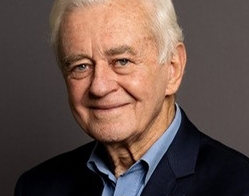

Blog

Flashback Friday: Time to break impasse in mental health treatment
Monday April 14, 2014
Keith Wilson AM: Former WA Minister for Health; Former Chairman, Mental Health Council of Australia; Director, Meeting For Minds
The international forum ‘Meeting for Minds’, planned for Fremantle next month (14-15 May, 2014), aims to help improve the life expectancy of mental illness sufferers by 10 years in the next decade, by forging ambitious and practical new directions in research and treatment.
Almost half of Australians aged between 16 and 85 can expect to experience a common mental health-related condition in their lifetime. And according to the Australian Bureau of Statistics, almost 800 die each year as a result (excluding suicide and dementia deaths). The ABS puts the national annual cost in lost productivity and treatment as high as $20 billion.
It goes without saying that most of the talk about mental health services, is really about mental ill-health. In particular, it is about the lack of ready access to good quality care.
In my view, the experience of many seeking such care is a stereotype of mediocre response characterised by a lack of personalised treatment and an integrated care plan.
Sadly, the implied and sometimes, overt message is that “this is as good as it gets” for the rest of your life. So, have we reached an impasse in the treatment of mental illness? Are patients (consumers), their carers and clinicians often just extremely frustrated by the absence of real breakthroughs to improve treatments and therapies over the last 20 years?
This sense of frustration is compounded when contrasted with the great strides made in the treatment of diabetes, hepatitis C, breast cancer, heart disease, eye disease, blood cancers and epilepsy.
Can the ‘Meeting for Minds’ forum put renewed energy into the search for new applications of science to bring about practical breakthroughs leading to better treatments?
This event is a unique attempt to bring together experts from the fields of neuroscience and mental health research, clinicians and people with lived experience of mental illness to find a common, purposeful language.
This conversation will focus on finding new scientific directions to elicit new treatments directly related to the experience of those who live with mental illness and will be monitored by them.
The forum will bring to Western Australia prominent European and Israeli neuroscientists, mental health researchers and clinicians to meet with their Australian counterparts and national and local leaders among people with personal experience of mental conditions.
Among those attending from overseas will be Professor Norman Sartorius, former Head of the WHO Division of Mental Health in Geneva; Associate Professor Itamar Kahn of Israel’s Technion University; and Professor Philippe Fossati of the ICM (Brain & Spine Institute), Paris.
Australian participants will include Professor Ian Hickie, Director of the Brain and Mind Research Institute, University of Sydney; Professor Julio Licinio of the South Australian Mind and Brain Research Institute; Professor Fiona Stanley, Founding Director of the Telethon Institute of Child Health Research; Professor Geoff Gallop, former Premier of WA; Heath Black, former AFL footballer; and Lyn Mahboub, Manager, Hearing Voices Network Australia. Professor Hickie will be the Clinical Coordinator for the forum while the Facilitator will be Dr Norman Swan, producer and presenter of ABC Radio National’s Health Report.
‘Meeting for Minds’ was conceived by Maria Halphen, President of the Philippe and Maria Halphen Foundation, based in Paris.
Maria spent most of her school years in Perth and her inspiration for the forum came from the traumatic experience of a lifelong friend, Susie Hincks, who lost most of her twenties to her battle with schizophrenia.
Susie considers herself lucky and is also a passionate believer in research as the best means of delivering hope to those in need. Everyone on the organising committee knows some topics will be controversial. But the opportunity to discuss and debate the five key propositions (including increasing life expectancy) just might provide the impetus to give crucial insights into mental health.
We need those clinicians who are interested in joining this conversation to help forge new research paradigms.
It’s hoped the ‘Meeting for Minds’ forum will become a biennial event promoting an ongoing conversation centred on eight projects to be prioritised by the 200 participants – May 14-15 presents a unique opportunity to be in there at the start.
The forum outcomes will be summarised in an academic publication planned for international discussion and review.
To find our more visit www.meetingforminds.com

